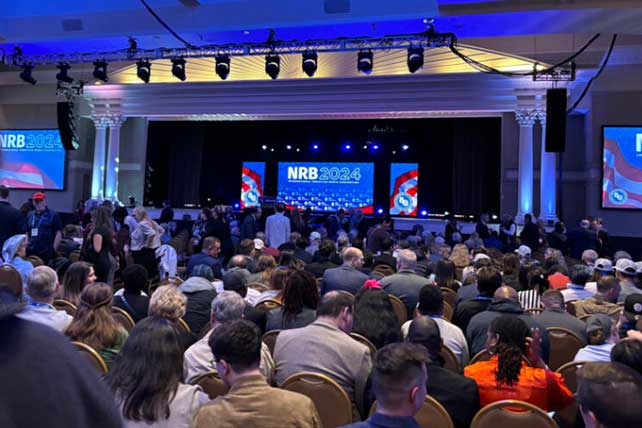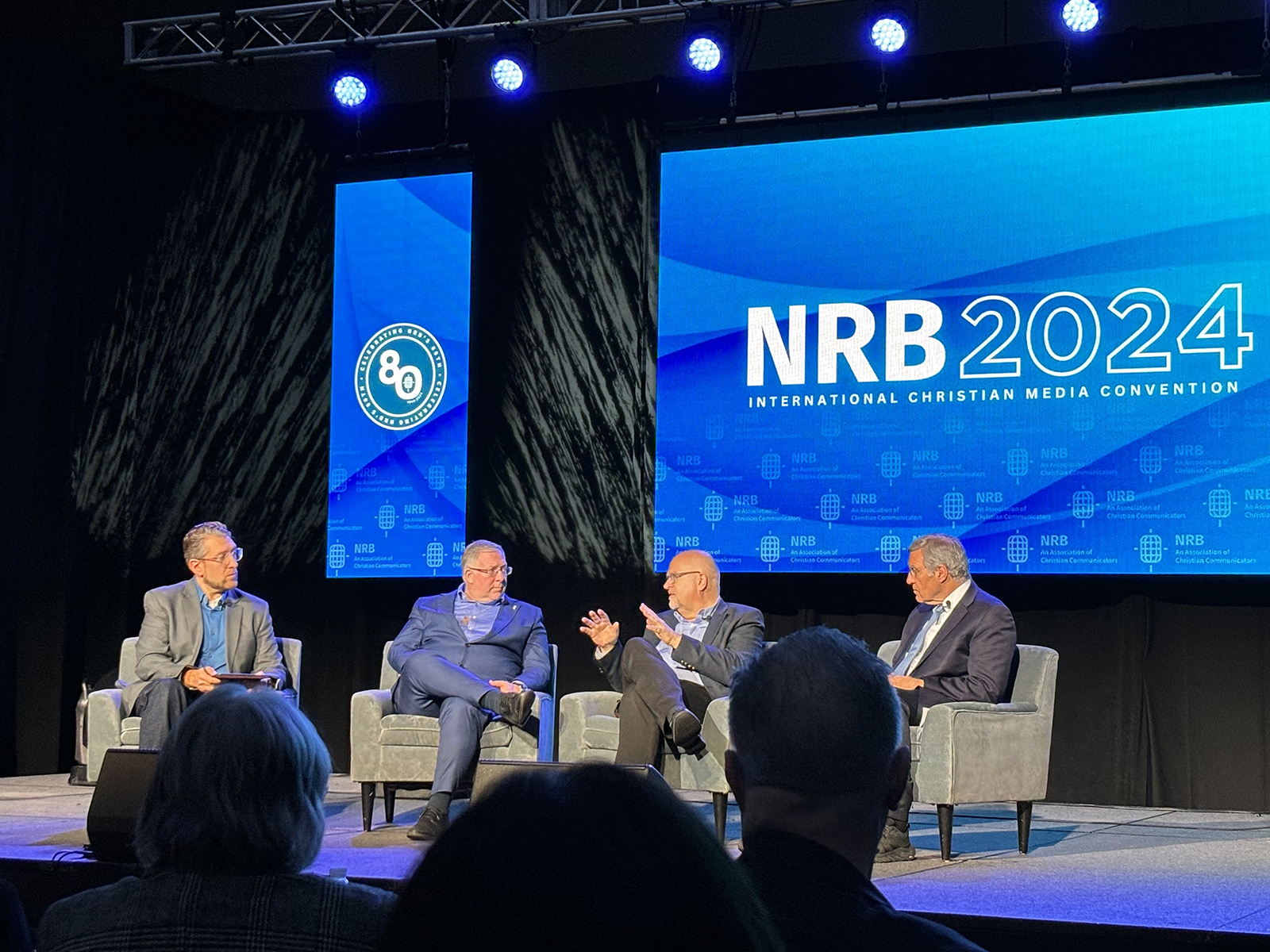(RNS) — A group of evangelical broadcasters who hosted Donald Trump at their national conference earlier this year is suing the Internal Revenue Service over the so-called Johnson Amendment, a tax law that bars nonprofits from supporting political candidates.
Lawyers for the National Religious Broadcasters, along with two Baptist churches and a conservative group called Intercessors for America, argue in their suit that the ban on engaging in politics restricts their freedom of speech and freedom of religion. They further argue that the IRS ignores the politicking of some charities, while threatening to punish others.
In particular, lawyers for the groups claim that newspapers and other news outlets that have become nonprofits in recent years, such as the Philadelphia Inquirer, endorse candidates. Why can’t churches or other Christian groups, they want to know, do the same?
“Plaintiffs believe that nonprofit newspapers have a clear constitutional right to make such endorsements or statements,” read the complaint filed Wednesday (Aug. 28) in the United States District Court of the Eastern District of Texas, Tyler Division. “Plaintiffs simply contend that they should also have the same freedom of speech.”
The lawsuit is the latest challenge to the Johnson Amendment, a 1954 law that has long been the bane of conservative groups and, in particular, preachers seeking to become more involved in politics. The ban on taking sides in campaigns — including endorsements or campaign contributions — applies to nonprofits that fall under section 501(c)(3) of the IRS code.
For years Alliance Defending Freedom, a conservative legal group, organized “pulpit freedom” Sundays designed to have preachers violate IRS rules by endorsing candidates from the pulpit. As president, Donald Trump signed an executive order designed to give more leeway under IRS rules.
A panel during the National Religious Broadcasters convention at the Gaylord Opryland Resort and Convention Center in Nashville, Tenn. (RNS photo/Bob Smietana)
The current lawsuit pitches its argument toward similar religious freedom principles. “For too long, churches have been instructed to remain silent on pressing matters of conscience and conviction during election season or risk their 501(c)(3) status,” said NRB President Troy A. Miller in a statement announcing the lawsuit.
But the growing number of nonprofit newsrooms has added a new twist to the arguments over the Johnson Amendment that has to do with fairness. Those newsrooms, the complaint argues, should be required to abide by the same rules as other charities.
“Hundreds of newspapers are organized under § 501(c)(3), and yet many openly endorse political candidates,” lawyers for NRB and its co-plaintiff argued in their complaint. “Others make statements about political candidates that constitute forbidden statements under the IRS’ interpretation of the statutory prohibition against supporting or opposing candidates.
The Institute for Nonprofit News, with about 450 member organizations, including RNS, does not accept members that endorse candidates.
“Nonprofit news organizations do not endorse candidates and, under IRS guidelines, should not favor any candidate for public office in coverage or other action,” the INN’s guidelines for members state.
Karen Rundlet, the CEO and executive director of the INN, told RNS in an email that grants made to nonprofits often bar those funds from being used for political activity.
The complaint points specifically to the Inquirer’s candidate endorsements, as well as articles critical of candidates in other nonprofit publications from 2012 to the present, claiming all violated IRS rules with impunity.
While nonprofit newspapers such as the Salt Lake Tribune and Chicago Sun-Times no longer make political endorsements, the Inquirer does, in part because it has a different ownership structure.


